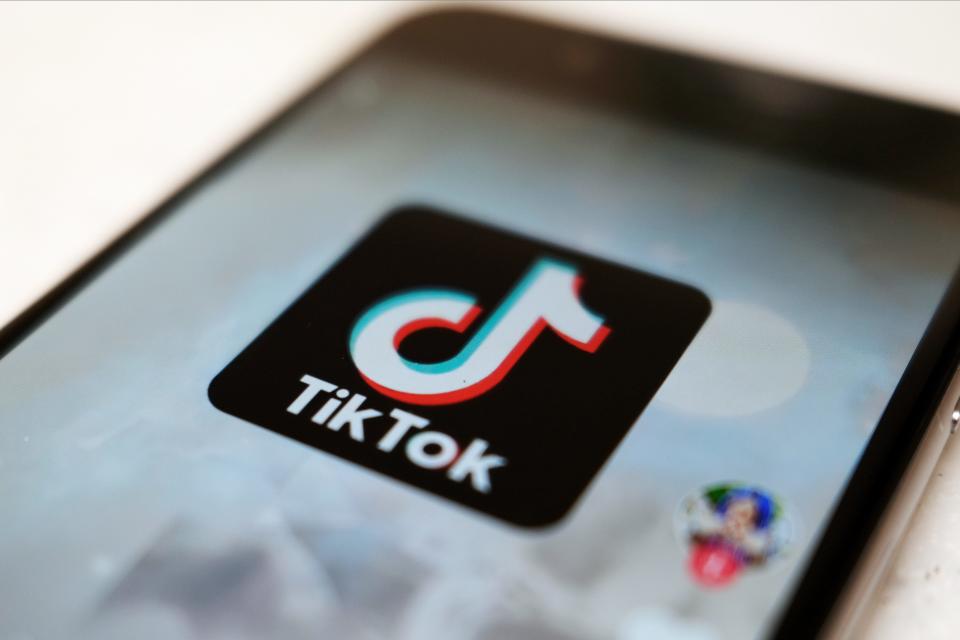UF students say they plan to keep using TikTok despite university, president warnings
Some faculty and students at the University of Florida are taking issue with the school's warning against the popular social media app TikTok.For some, giving up the app would come as a detriment.
UF sent an email to students and faculty on Jan. 12 that discouraged the use of TikTok and suggested removing the app on all devices due to data collection concerns. The move comes as some in Congress are also seeking to ban the Chinese company-owned app entirely by restricting U.S. citizens to download it on devices, saying it poses a national security threat. Congress has already passed a ban on the app on government federal devices despite little evidence showing the app is harmful.
Morgan Hurd said she understands that the university has students’ best interests at heart, but deleting TikTok from her phone just isn't that simple. The second-year English major is on the gymnastics team at UF and has a significant social media presence across various platforms.
“Even if the university restricts access to the app, I am sure there are students on campus that will easily be able to find ways to still access the app,” she said. “I think the university should focus their energy on a more important area.”

More:UF discourages TikTok use for students, faculty due to cybersecurity concerns
More:TikTok vandalism trend finds its way to Alachua County Public Schools
The app has gained worldwide recognition with its sometimes objectively funny short clips, similar to how Vine worked. It's been used as a marketing tool for many. Even Facebook and Instagram "Reels" caught onto the magic, maintaining users' attention for an extended period of time. But there is a dark side to the app, too, which has sparked trends resulting in injury and vandalism.
Before TikTok became a household name, its predecessor was called Musical.ly. The app was significantly less popular because of its abundance of short lip-sync videos.
Once TikTok and Musical.ly merged, the app slowly gained traction, hitting a new peak during the pandemic.
Celebrities, companies, news organizations and others around the world began using it.
Today, scrolling through TikTok has become as routine as checking the weather for some. For dedicated users, not checking the app is almost the equivalent of missing a week’s worth of news.
Sarah Lynne, an associate professor at UF with expertise in adolescent development and prevention science, said she doesn't see what the fuss is all about.
“I’ve never received any kind of communication, like from a professional organization, about a social media platform being unsafe, so it was surprising,” Lynne said. “To ban a platform, I feel like there should be a sort of high threshold that needs to be met related to what the evidence is for its lack of safety.”
UF's email states that “experts continue highlighting TikTok as a national security concern, pointing to the possibility that foreign governments may use TikTok to control data collection, influence TikTok's recommendation algorithm, and compromise personal devices.”
It's unclear if President Ben Sasse, who started this past week, will implement any changes beyond the university's suggestion. While at an event in Daytona Beach this week, the new president said China could shut down "huge portions of the U.S. economy," if they wanted to use collected data from users.
"Shout out to all of those that think TikTok is anything other than a tool of the Chinese government," said Sasse, adding his record for supporting bills that restrict what apps can do. "These are fake private-sector companies that are really controlled by the national security laws of china to try gather more and more big data."
Some students say it's contradictory for UF to have a TikTok account that they deleted in lieu of the email, adding that there are similar risks in using Facebook, Instagram and Snapchat.
“If you already have the account, they already have your information,” said Olivia Green, a junior finance and economics major.
But growing speculation about the app being dangerous hasn't thwarted young users who say it has value. Until there is substantial information to support the concern, UF students say they plan to keep using it.
“It’s a source of a lot of helpful information,” said Haneen Abdo, a first-year computer science major at UF.
Aidan Garemani, a second-year chemistry major, said he hasn't even considered deleting it since UF's email went out, adding that the app is a useful way to share information and promote free speech.
Jose Tovar, a fourth-year journalism major, said he uses TikTok about four times a day.
“I don’t see any consequences happening to me right now,” he said.
“I feel like they didn’t provide enough information for students to make an educated decision on it,” said Nicole Baird, a junior behavioral and cognitive neuroscience major. “I feel like it deals with having the new president be Republican.”
For others, the situation isn't dire − and it's just a hard habit to break.
“The only thing that social media stands to gain from in terms of profit is attention span,” Megan Tachev, a senior plant science major. “I’ve had it before, but I’ve deleted it a million times because the app is so addictive.”
This article originally appeared on The Gainesville Sun: UF students, faculty to continue using TikTok despite school warning

